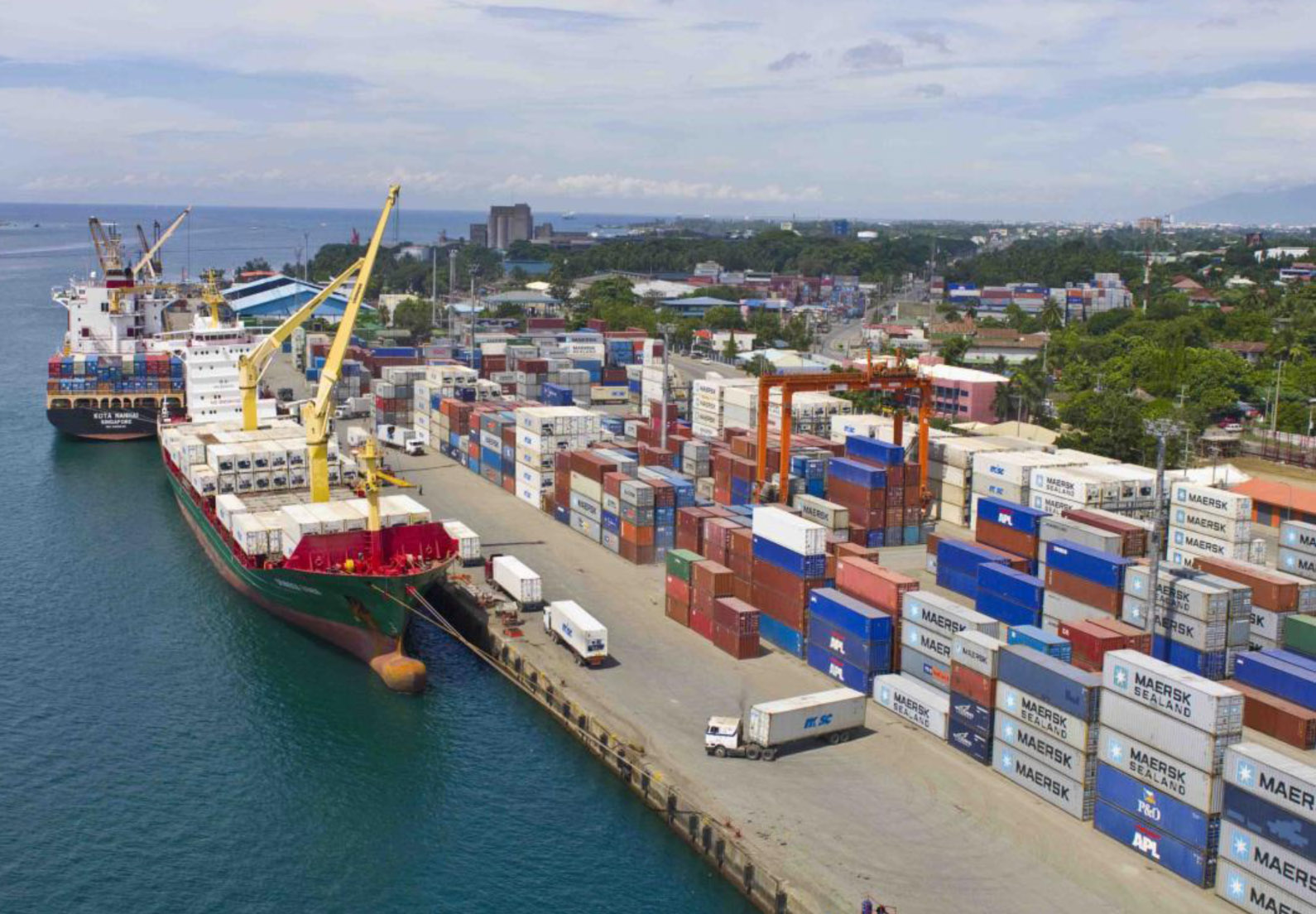
MANILA – Department of Trade and Industry (DTI) Secretary Gregory Domingo on Wednesday stressed the need to build a new port to increase the capacity of the congested ports of Manila amid the growing economy of the country.
”The long term solution really is we need to build a new port because our economy is going to continue to grow at a very fast pace over the next decades,” Domingo said in a Senate committee on trade, commerce and entrepreneurship inquiry into the congested ports of Manila
Domingo admitted to the Senate panel that the Manila ports have already exceeded their capacity due to the increasing number of containers coming in and out of the country “because of our economy.”
”So, the solution is to add more capacity,” Domingo emphasized.
The government official said other long-term solutions as suggested by the International Container Terminal Services, Inc. (ICTSI) is the revival of the rail line from Tutuban near the North Harbor to Calamba in Laguna.
”They (ICTSI) are willing to build at their own expense so that they can use the train to bring containers all the way to Calamba,” Domingo said.
Domingo said the shippers can also use the Subic and Batangas ports but it will only alleviate the congested Manila ports by at least only 15 percent.
During the hearing, Manila vice mayor Isko Moreno announced the opening of the Quirino Ave. for the twenty-foot equivalent units (TEUs) from the North and South harbor to the South Luzon Expressway (SLEX) starting Monday next week.
”The TMC (Traffic Manila Council) will meet to draft a resolution to amend the route which will be opened for truckers, uninterrupted, full operational for 24 hours a day,” Moreno said.
Moreno, however, said the Manila city government will continue to enforce the truck ban outside the designated areas specifically the San Marcelino road from 6am to 10am and from 5pm to 9pm during weekdays.
”With this truck ban, you can see that there is no longer chaos in Manila and we were very honest when we said that you can stay but you have to behave,” Moreno said.
Alberto Saunsing, director of Confederation of Truckers Association of the Philippines, insisted that the Manila track ban has contributed to the congestion at the Port of Manila.
”Before the Manila truck ban, we were doing 6,000 truck trips per 24 hour but after the truck ban, we were down to 2,000 truck trips per day. That’s logistical nightmare. You don’t have to go to Harvard to realize that,” Suansing said.
Meanwhile, Senate committee on trade, commerce and entrepreneurship chairperson Senator Paolo Benigno ‘Bam’ Aquino IV has instructed concerned government agencies to operate in the ports of Manila even during weekends to process the documents of truckers
”So, let’s wait for four weekends that our ports are opened and that’s the commitment that we have to the agencies there and we will check that if we pull out during weekends, it will help the congestion,” Aquino said.
The truckers complained that although the Bureau of Customs (BoC) officials are present, other government personnel such as from the Department of Agriculture (DA) are absent during weekends.
”We have to ask the government agencies to open during weekend and Monday mornings to make sure that we have longer hours of operation inside the port,” Aquino added.
Aquino also said there is a need to address the corruption issue after Federation of Fil-Chinese Chamber of Commerce and Industry (FFCCCI) executive director Danny Cheung complained about the “miscellaneous expenses along the way.”
”I think one resource speaker has mentioned that there are ‘along the way fees’ which are undocumented. We have to look into that,” Aquino told the Senate media after the hearing.
During the hearing, Senator Francis ‘Chiz’ Escudero requested Cheung to elaborate the ‘along the way fees’ but the FFCCCI official answered again ‘along the way.’
”When you said along the way, is that paying along the way or what is along the way?,” Escudero asked Cheung again.
”Something like there are many charges,” Cheung answered.
”Who has many charges?” Escudero asked again.
”Along the way. I cannot precisely describe it at this moment,” Cheung replied.
Escudero stopped from pursuing his question but reminded the resource persons the need to decongest Manila ports so as not to affect the prices of basic commodities.